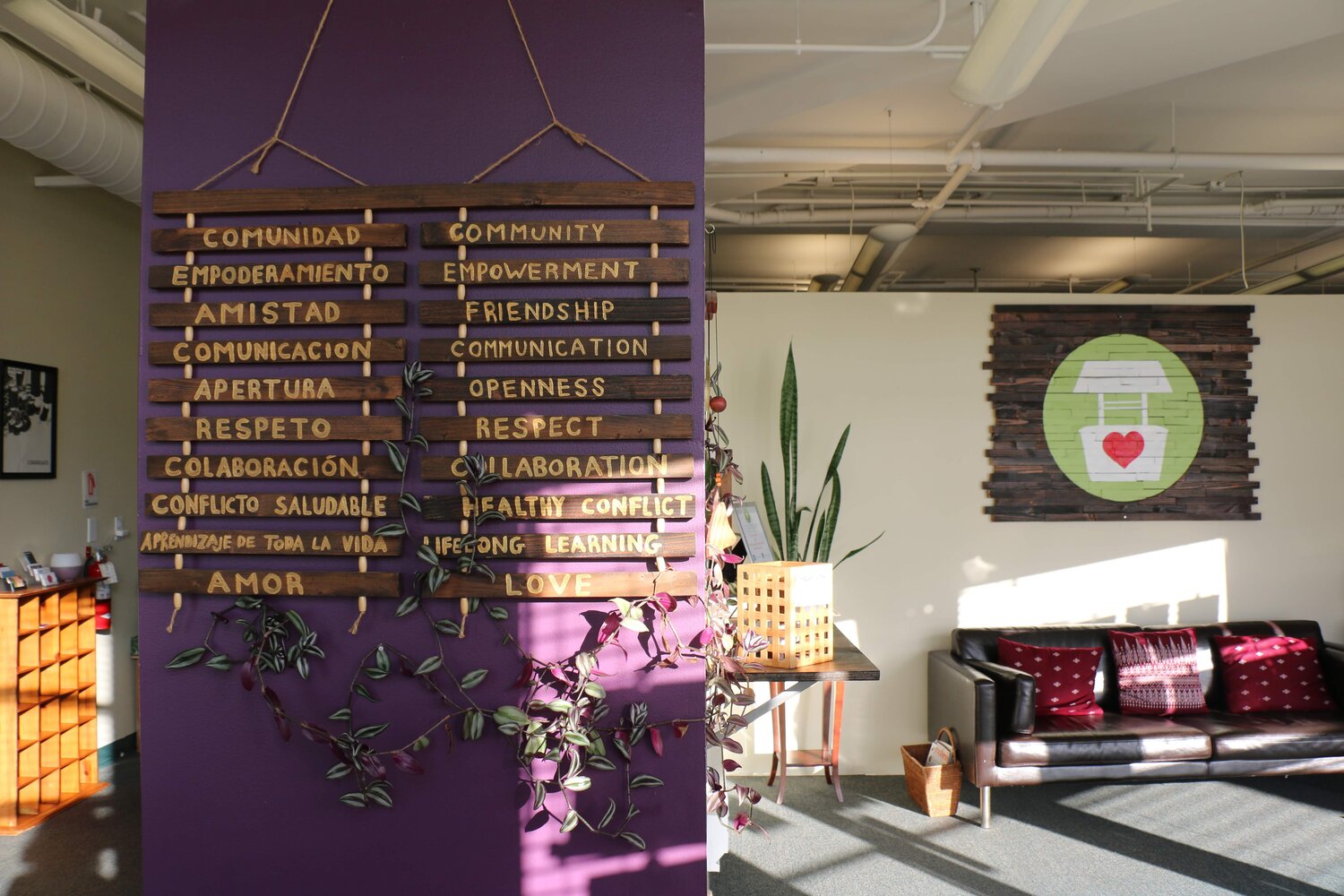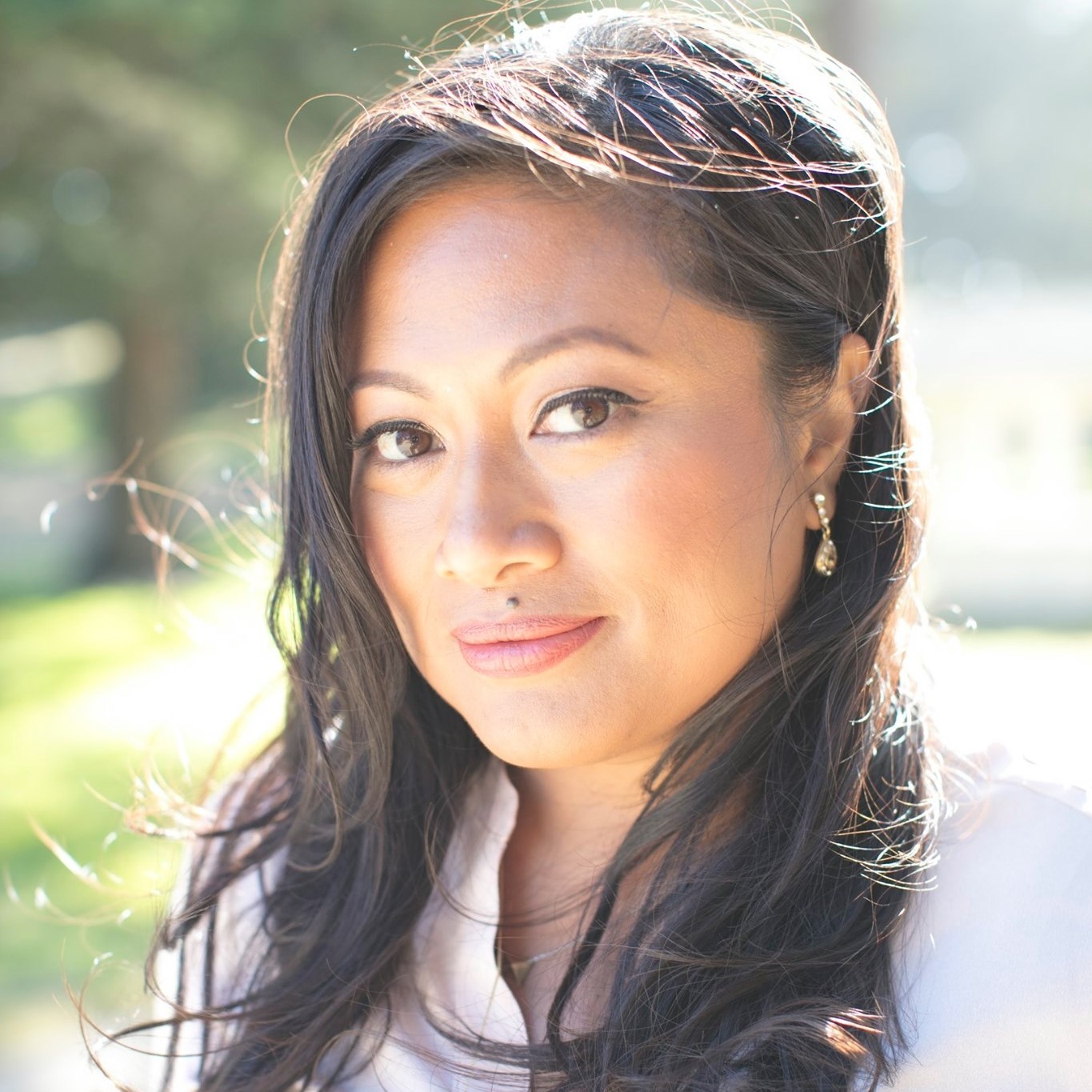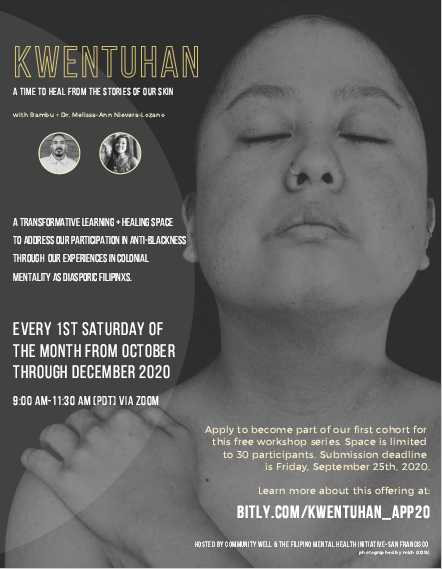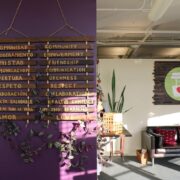
Coronavirus lockdowns, ongoing protests and navigating working from home and online school, on top of everyday responsibilities, can all take a toll on one’s mental health and well-being.
To offer some relief, a San Francisco-based health and wellness center is offering free virtual classes for the Filipino American community and other communities of color in the city and even elsewhere.
Community Well, founded by a group of Filipina and Latina women in 2015, has operated out of its physical space in the Excelsior District, hosting classes and services like yoga, counseling and maternal health workshops.
It has become a “healing space” where holistic and spiritual support, which nowadays seems inaccessible, is brought back to communities that have practiced these traditions.
In January, the center launched the “H3: Happy, Healing & Healthy Program,” a series of accessible drop-in healthy food, fitness, and emotional transformational classes, made possible through a grant from the SF Sugary Drinks Distributor Tax Community Funds.
But because of the shelter-in-place order in the city, it shifted its offerings online.

“Our philosophy around it is that health is a whole human experience,” co-founder Jennifer Navarro-Marroquin, a licensed financial professional and holistic practitioner, told the Asian Journal. “Access to high-quality information is very important and it’s also important for us to understand the barriers emotionally that keep us from making these healthy choices.”
Facilitators and practitioners in the program are diverse and reflect the participants they serve, and are trained in various rituals and traditions, like Filipino healing. In the past, Community Well has had hilot self-care sessions and Agasan workshops that took traditional Filipino sound and movement practices and integrating them into a modern context.
The current weekly classes offered on Zoom, regardless of race or income level, include “Food as Medicine” (nutrition basics and healthy cooking and eating demonstrations); “Move More!” (community yoga, healing hikes and dance); a homeopathic clinic for San Francisco residents with limited incomes; and “I Feel Good” (a six-week chronic illness prevention program).
The prevention program, which will begin again in early October, is vital in the time of COVID-19 when communities of color and those with underlying chronic conditions are at higher risk.
“We also have the transformational circle that talks about emotions and how to healthily process our emotions and talk about barriers around income that people feeling stressed about, stress management. Also, we talk about our migration story because a lot of people don’t understand that really plays a factor,” Navarro-Marroquin said.
Virtual classes at centers like Community Well come at a time when weekly surveys from the National Center for Health Statistics (NCHS) and the U.S. Census Bureau show the toll COVID-19 is taking on collective mental health, and disproportionately on Black individuals and other people of color. (At the end of August, over 40% of respondents in California indicated feeling symptoms of anxiety or depression.)
The center has seen that over 70% of people accessing the services are from communities of color. The facilitators recognize the responsibility and trust placed on the center as individuals typically struggle with asking for help.

“At the very basic, let’s just ask for help and trust in the people that surround us. With families and healthy living, do the best you can with everything that is available to you and let go of the guilt or having an idea of what it needs to look like,” Navarro-Marroquin said, suggesting carving out some alone time each day to focus on one’s self.
Starting this October, Community Well and the Filipino Mental Health Initiative-San Francisco will host “Kwentuhan: A time to heal from the stories of our skin” every first Saturday of the month through December. There is no cost to participate, and 30 spots are available.
The series will bring together Fil-Am wellness practitioners, mental health professionals, educators, and community organizers — among them are rapper Bambu, ethnic studies professor Melissa-Ann Nievera-Lozano, holistic practitioner Anî La’arni Ayuma, and clinical psychologist Jeannie Estella Celestial — to unpack intergenerational issues like racism, anti-Blackness and colonial mentality, and come away with more solidarity with the Black community and tools to build a more inclusive society.
“It’s not just about direct services. It’s about getting into policy and bringing more voices to the decision making tables,” Navarro-Marroquin said. “If you’re going to step up as a leader in any capacity, that real systemic change, you have to also be committed to that too.”





